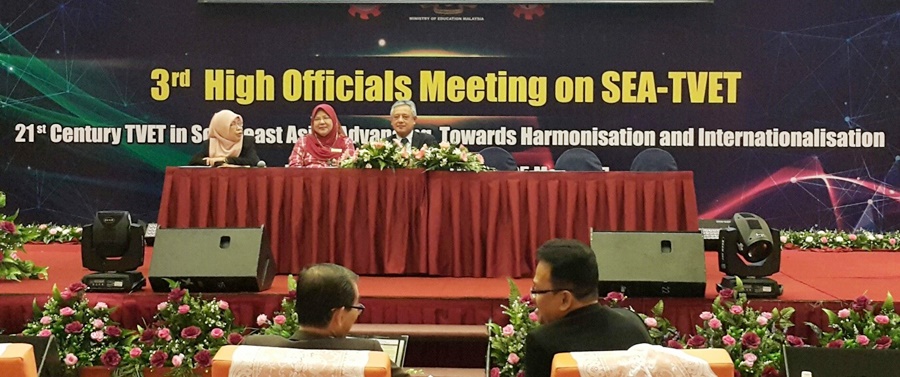Themed 21st Century TVET in Southeast Asia: Advancing towards Harmonization and Internalization, the 3rd HOM on SEA-TVET aimed to further identify regional policy directions and strategies to advance and harmonize TVET education to meet the 21st century labor demands of the Southeast Asian region.
The proposal aims to assess the development of competency standards for agricultural workers in the ASEAN region in view of the Regional Model for Competency Standards in Agriculture and Aquaculture developed by the International Labor Organization (ILO). Specifically, the proposed project will review and assess the current situation of ASEAN Member States (AMS) in developing competency standards for agriculture and identify gaps, challenges, and recommendations to be addressed by the ASEAN Secretariat, SEAMEO, and concerned AMS.
In his presentation, Dr. Saguiguit also emphasized that agriculture remains the backbone of most Southeast Asian economies with approximately 450 million people depending on it for livelihood, food, and trade. Hence, the need to develop competencies of agricultural workers in light of their important role in raising farm productivity and contributing to food and nutrition security and poverty alleviation in the region.
The meeting was hosted by the Government of Malaysia through its Ministry of Education (MOE) and convened by the Southeast Asian Ministers of Education Organization (SEAMEO) Secretariat (SEAMES) and the SEAMEO Regional Center for Vocational and Technical Education (VOCTECH). It brought together secretary generals on TVET of Ministries of Education, Ministries of Labor and Training, Ministries of Science and Technology, Ministries of Higher Education and other related ministries of Southeast Asian countries; TVET policymakers and directors of TVET institutions; as well international development agencies and partner organizations.
